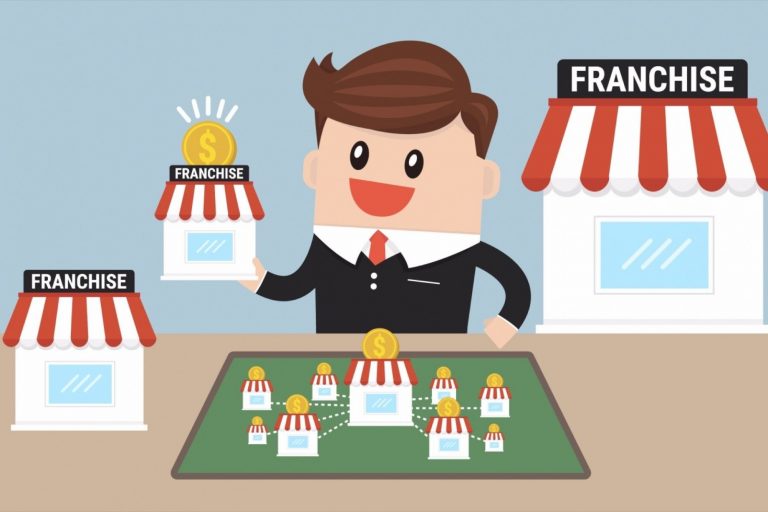CloudFran’s Capabilities in Supplier Management
CloudFran’s capabilities in supplier management provide all the essential tools for complete supply chain visibility and management. CloudFran offers robust capabilities in supplier management, which are essential for ensuring smooth and efficient franchise operations. As franchise networks often deal with multiple suppliers for products, services, and inventory, CloudFran’s supplier management features help streamline these relationships, reduce costs, and enhance operational efficiency. Here’s a detailed breakdown of CloudFran’s capabilities in this area:
Key Capabilities of CloudFran in Supplier Management:
- Centralized Supplier Database
– CloudFran provides a centralized platform where all supplier information, contracts, pricing agreements, and performance metrics are stored. This allows franchise operators to have a comprehensive view of their supplier relationships and easily manage multiple vendors across different locations and categories.
- Supplier Performance Tracking
– CloudFran enables franchise owners and managers to monitor and evaluate supplier performance based on delivery times, product quality, pricing, and service levels. This data-driven approach allows businesses to make informed decisions about which suppliers to retain and which ones may need to be replaced or renegotiated.
- Contract Management
– With CloudFran, franchisees can easily manage supplier contracts, track contract expiration dates, and ensure compliance with agreed terms. The system also provides alerts and reminders for contract renewals or renegotiations, helping businesses stay on top of their supplier relationships and avoid lapses in agreements.
- Multi-Currency Support for International Suppliers
– CloudFran supports multi-currency transactions, making it easy for franchises that operate internationally or source products from global suppliers. This feature ensures accurate invoicing and payments regardless of the suppliers’ currency, reducing the risk of errors and currency exchange complications.
- Automated Purchase Orders
– CloudFran automates the process of generating and sending purchase orders to suppliers based on inventory levels, sales forecasts, and demand trends. This helps ensure that franchises always have the right amount of inventory without over-ordering or experiencing stockouts, leading to more efficient supply chain management.
- Supplier Communication and Collaboration
– CloudFran facilitates seamless communication with suppliers through integrated messaging and collaboration tools. Franchise owners can interact with suppliers to discuss orders, delivery schedules, and any potential issues directly within the platform. This improves transparency and ensures that both parties are on the same page at all times.
- Inventory Integration
– CloudFran’s supplier management integrates closely with its inventory management system. This allows franchise owners to automatically adjust inventory levels as new shipments arrive, track which suppliers are fulfilling orders efficiently, and quickly identify any supply chain bottlenecks. It also helps to keep optimal stock levels across all franchise locations.
- Cost Optimization and Price Comparison
– CloudFran provides tools to compare pricing from multiple suppliers, enabling franchisees to make cost-effective purchasing decisions. It also allows businesses to negotiate better deals by providing visibility into bulk purchasing opportunities and alternative suppliers.
- Compliance and Regulatory Management
– CloudFran helps ensure that all suppliers meet the necessary regulatory and compliance standards, including food safety regulations (for restaurant franchises), environmental requirements, and ethical sourcing practices. This is particularly valuable for franchises in regulated industries, such as health and wellness or food services, where supplier compliance is critical.
- Supplier Payment and Fintech Integration
– CloudFran integrates with its proprietary Vendor Management System (VMS) to streamline the payment process for suppliers. This system facilitates fast, secure, and transparent payments, allowing businesses to manage supplier invoices, track payments, and ensure that payments are made on time. This reduces friction in the supply chain and helps maintain strong supplier relationships.
- Forecasting and Demand Planning
– CloudFran’s AI-powered forecasting tools help franchises anticipate their supply needs based on sales trends, seasonal demand, and historical data. This proactive approach to demand planning ensures that suppliers receive timely orders, reducing the risk of supply chain disruptions or delays.
- Supplier Risk Management
– CloudFran includes features to assess and manage supplier risks, such as financial stability, geopolitical risks, or supply chain disruptions. Franchise owners can use this data to mitigate risks by diversifying their supplier base, adjusting inventory levels, or renegotiating contracts when necessary.
- Multi-Location Supplier Management
– For franchises with multiple locations, CloudFran makes it easy to manage suppliers across different regions. The platform enables businesses to create supplier hierarchies, assign suppliers to specific locations, and monitor supplier performance by region, all from a single interface.
Benefits of CloudFran’s Supplier Management Capabilities:
– Improved Supply Chain Efficiency: By automating purchase orders, tracking supplier performance, and integrating with inventory management, CloudFran streamlines the entire supply chain process, reducing the time and effort needed to manage suppliers.
– Cost Savings: CloudFran’s ability to compare prices, negotiate better deals, and avoid over-ordering helps franchise owners save money on supplies while maintaining the quality and consistency of goods.
– Better Supplier Relationships: Centralized communication tools and fast payment options foster stronger relationships with suppliers, making them more likely to offer favorable terms and prioritize your orders.
– Risk Mitigation: By continuously monitoring supplier performance and compliance, CloudFran helps franchises reduce the risk of supply chain disruptions and ensure that all suppliers meet the necessary standards.
– Global Supply Chain Support: CloudFran’s multi-currency and multi-location support make it easy for international franchises to manage their supply chains efficiently, regardless of where their suppliers are located.
Conclusion
CloudFran’s comprehensive supplier management capabilities are designed to address the unique needs of franchise operations, offering tools that streamline purchasing, monitor supplier performance, and optimize supply chain efficiency. Whether managing a local supplier or working with international vendors, CloudFran ensures that franchisees have the visibility, control, and automation needed to maintain smooth and cost-effective supplier relationships. This functionality is a key element of CloudFran’s broader platform, empowering franchises to grow and scale while maintaining operational excellence.







